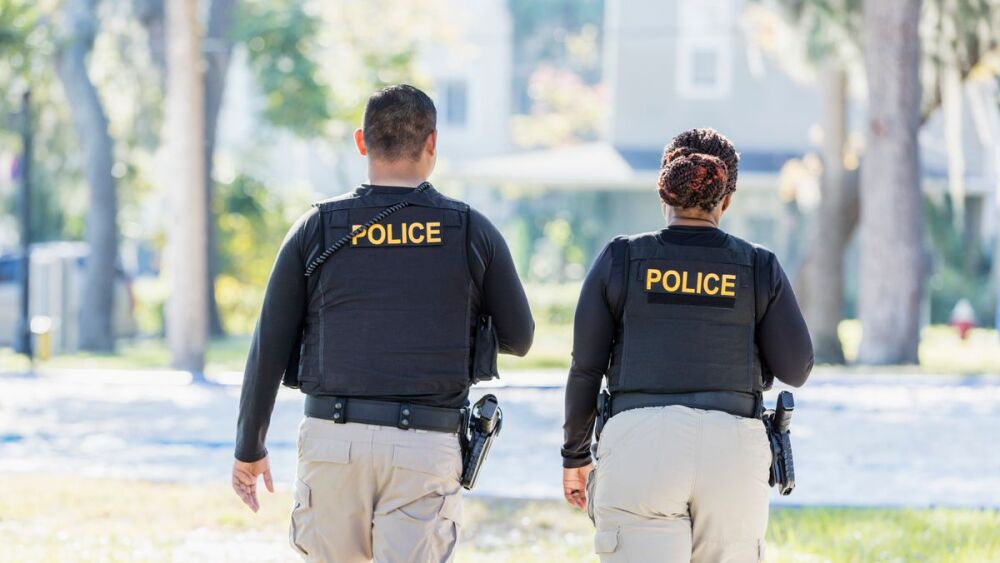The past three years have been exceptionally challenging for America’s police leaders, and the uncertainties of 2024 loom large.
At the beginning of 2020, gun violence was desecrating our cities, the national opioid/fentanyl crisis was unabated, and youth suicide escalated to a 20-year record high. Our divided nation became a tinder box of anger, hate and conflict.
Additionally, during the first quarter of 2020, the nation was confronted by the terrifying grip of a hundred-year pandemic, the COVID-19 coronavirus. In a sea of confusion and mistrust, government leaders at all levels joined the private sector to quickly set forth measures to reduce the risk of the virus and develop a vaccine that would begin to immunize the globe.
While hospitals and healthcare providers were being overwhelmed, nonessential industries closed and workers were sent home. Generally, most states required schools to close and implemented home learning. Limited social contact was imposed and was met by anger and defiance.
Clearly, law enforcement and public safety personnel had to endure drastic emergency operational requirements while assuming many new duties to better serve and safeguard the community. Then, when you think that nothing could be more challenging, the unthinkable happens. The murder of George Floyd at the hands of a police officer shocked the conscience of the world. While mostly peaceful, large protests demanding accountability and police reform erupted in all 50 states and on every continent except Antarctica. Of note, the composition of the protesters was inclusive and diverse, with representation across all social, ethnic, race, age and gender groups.
In response to this tragedy, I chaired a diverse group of thought leaders to compile a collaborative white paper, Building Trust Between The Police and Community in Michigan: Lessons for the Nation from the Year 2020. Recognizing that no one size fits all solutions, the white paper is intended to bring hope with measures that enhance trust in the communities we strive to serve. Additionally, there are several proven methods and recommendations that can still be beneficial to the police and the community alike in 2024. (Read the report here and below.)
Preparation and partnerships for 2024
As 2024 rolls in, law enforcement agencies around the country are short-staffed and experiencing a rise in crimes that further threaten the safety and security of our neighborhoods. Mass shootings will reach a record 700 incidents by year’s end, with 40,000 of our citizens killed by gun violence.
Moreover, growing isolationism and global events in the Middle East and Ukraine have intensified the potential for danger and conflict at our universities and houses of worship. Governmental agencies, courts at all levels, and the nation’s capital all have experienced targeted violence.
The need to renew and enhance trust and respect with stakeholders and law enforcement partners has never been greater.
Here are some measures to consider:
- Make certain that every member of your agency is committed to providing objective and equal service to every individual to earn their trust and respect.
- Upgrade your department’s certifications and accreditation.
- Ensure that national best practices for the use of force are implemented. All incidents involving the use of force must be immediately and transparently investigated.
- Ensure that all members of your agency are well-trained and equipped to deal with critical incidents. Train with local government entities and federal, state and local partners.
- Engage schools, faith-based organizations and business and civic groups in viable solutions that enhance their safety and quality of life for the constituents.
- Utilize social media as a force multiplier to reach individuals and Gen Z members who would otherwise have little or no contact with the police.
- Partner with behavioral health professionals, universities, community members and legal partners to develop a non-criminal intervention model that will allow family and friends to seek help for troubled individuals who may become a danger to themselves or others. Case studies have disclosed that in most incidents, while law enforcement had little or no contact with subjects involved in active shooter/suicides, family members or friends saw troublesome signs in many cases.
In conclusion, police leaders face unique complexities that have never been tested. Admittedly, it has never been tougher to be a cop in America. Having said that, the awesome responsibility to protect the liberty of ALL THE PEOPLE remains paramount. Transparency and equal treatment will gain the much-needed trust between the community and the police as each of you goes about securing our nation one block at a time.
Building Trust Report Full Report by epraetorian on Scribd



